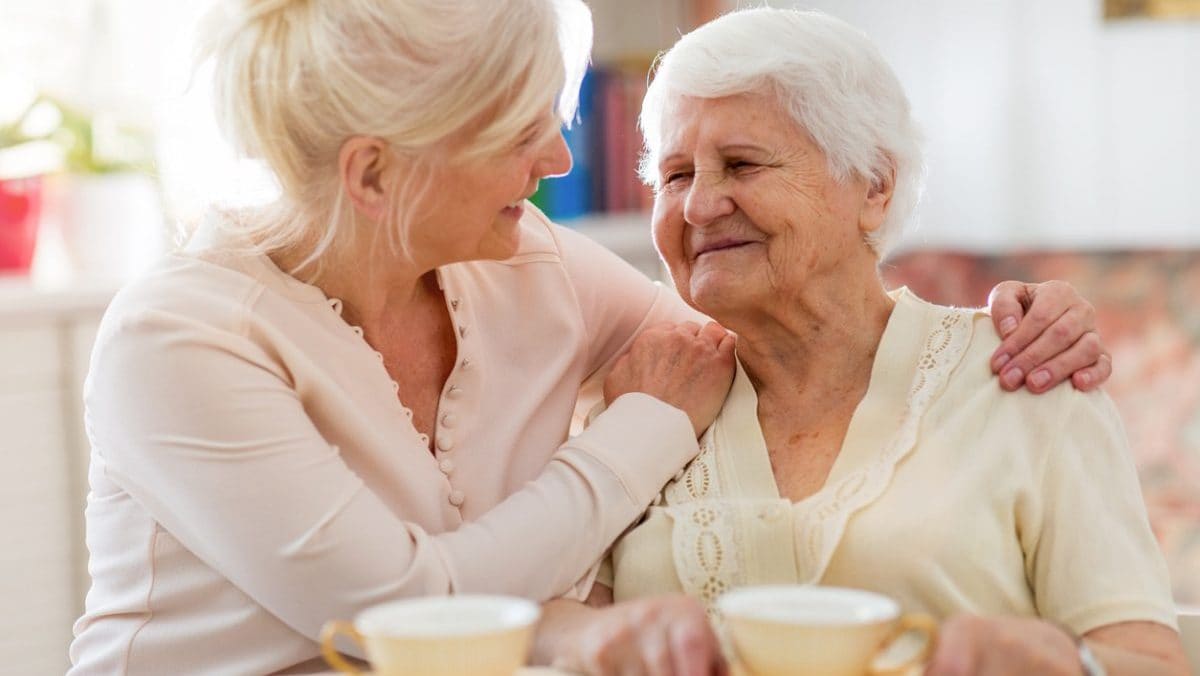Key points
- Many unpaid caregivers have or are at risk of worsening memory loss, which can be an early sign of dementia.
- Caregivers can make healthy lifestyle choices to reduce their risk of memory loss.

Importance of caregivers
Millions of adults rely on unpaid caregivers to stay independent.
- As the population ages, more family and friends are likely become caregivers.[1]
Among caregivers of adults 50 and older:
- About 6 in 10 help with household tasks, like getting dressed or bathing.
- Nearly all help with at least one critical activity of daily living, like transportation or managing finances.
Memory loss in caregivers
A CDC study found that about 1 in 8 unpaid caregivers who are 45 or older experience worsening confusion or memory loss.
- Memory loss was more common in caregivers than noncaregivers.
- Caregivers between ages 45 and 64 were more likely to report worsening memory loss than noncaregivers of the same age group.[2]
Caregivers with worsening memory loss often have at least one chronic health condition, putting them at risk of needing care themselves.
Memory loss can affect a caregiver’s ability to care for themselves, as well as their loved ones.
- Memory loss can affect the quality of their caregiving, which often requires clear thinking.
Reducing the risk of memory loss
Caregivers can reduce their risk for memory loss by making positive lifestyle choices:
- Seeing a doctor regularly.
- Being physically active.
- Eating healthy meals.
- Getting enough sleep.
- Drinking less alcohol or choosing not to drink.
- Not smoking.
To avoid extra stress, caregivers should make these changes gradually.
It’s also important for caregivers to talk to a health care provider if they notice changes in their memory.
- Health care providers can help identify potentially reversable or treatable causes or detect dementia early to reduce the impact of the disease.
Resources
- Caregivers of a Person with Alzheimer's Disease or a Related Dementia
- Public Health Center of Excellence on Dementia Caregiving
- Reducing Risk for Dementia
- Chronic Disease | Chronic Disease | CDC
- National Alliance for Caregiving and AARP. Caregiving in the U.S. 2020: A Focused Look at Family Caregivers of Adults Age 50+. 2020. https://www.aarp.org/content/dam/aarp/ppi/2021/05/caregiving-in-the-united-states-50-plus.doi.10.26419-2Fppi.00103.022.pdf
- Jeffers EM, Bouldin ED, McGuire LC, et al. Prevalence and characteristics of subjective cognitive decline among unpaid caregivers aged ≥45 years—22 states, 2015–2019. MMWR Morb Mortal Wkly Rep. 2021;70(46):1591–1596. doi: 10.15585/mmwr.mm7046a1.PMID: 34793418
